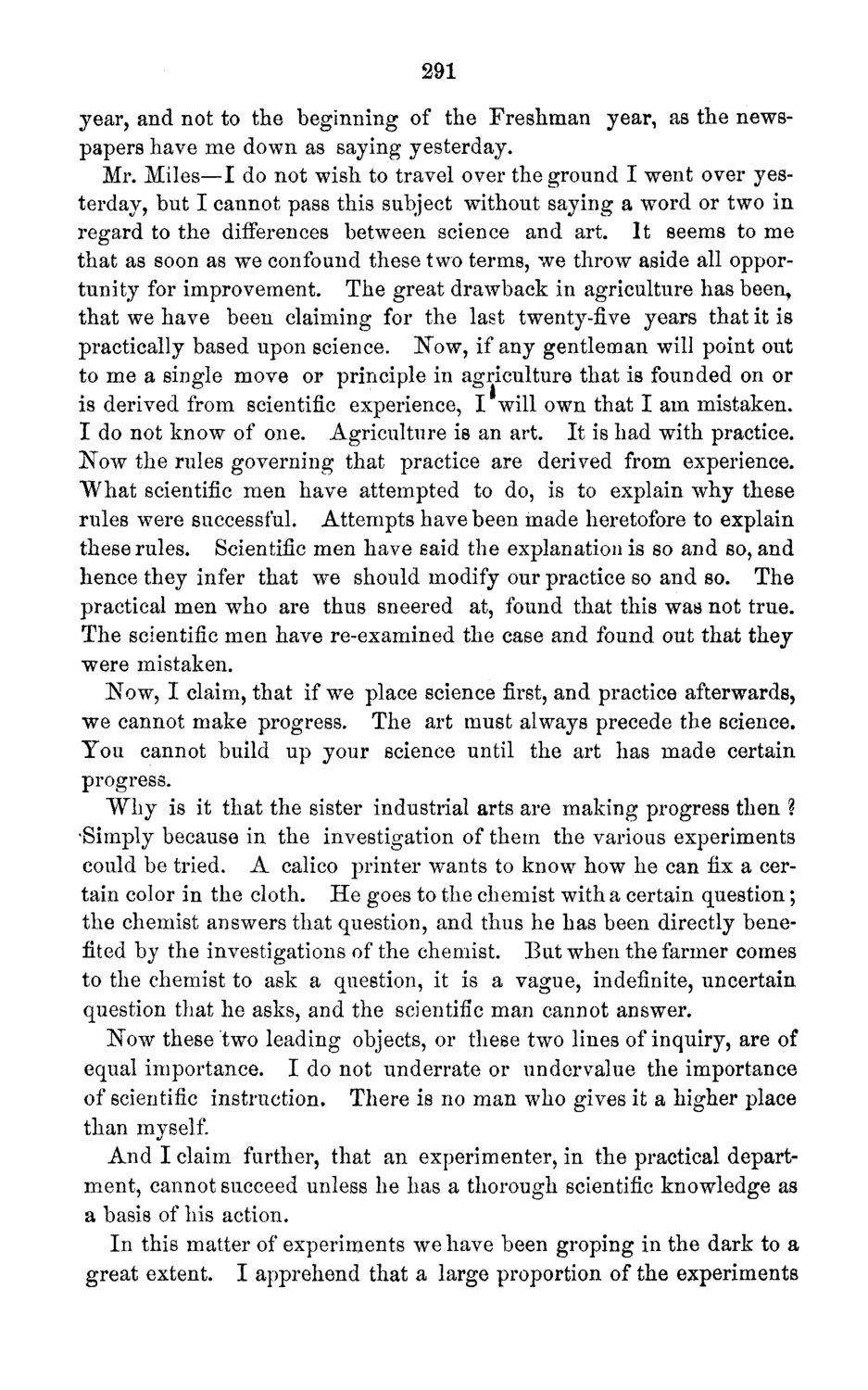| |
| |
Caption: Board of Trustees Minutes - 1871
This is a reduced-resolution page image for fast online browsing.

EXTRACTED TEXT FROM PAGE:
291 year, and not to the beginning of the Freshman year, as the newspapers have me down as saying yesterday. Mr. Miles—I do not wish to travel over the ground I went over yesterday, but I cannot pass this subject without saying a word or two in regard to the differences between science and art. It seems to me that as soon as we confound these two terms, we throw aside all opportunity for improvement. The great drawback in agriculture has been, that we have been claiming for the last twenty-five years that it is practically based upon science. Now, if any gentleman will point out to me a single move or principle in agriculture that is founded on or is derived from scientific experience, I will own that I am mistaken. I do not know of one. Agriculture is an art. It is had with practice. Now the rules governing that practice are derived from experience. What scientific men have attempted to do, is to explain why these rules were successful. Attempts have been made heretofore to explain these rules. Scientific men have said the explanation is so and so, and hence they infer that we should modify our practice so and so. The practical men who are thus sneered at, found that this was not true. The scientific men have re-examined the case and found out that they were mistaken. Now, I claim, that if we place science first, and practice afterwards, we cannot make progress. The art must always precede the science. You cannot build up your science until the art has made certain progress. Why is it that the sister industrial arts are making progress then ? 'Simply because in the investigation of them the various experiments could be tried. A calico printer wants to know how he can fix a certain color in the cloth. He goes to the chemist with a certain question; the chemist answers that question, and thus he has been directly benefited by the investigations of the chemist. But when the farmer comes to the chemist to ask a question, it is a vague, indefinite, uncertain question that he asks, and the scientific man cannot answer. Now these two leading objects, or these two lines of inquiry, are of equal importance. I do not underrate or undervalue the importance of scientific instruction. There is no man who gives it a higher place than myself. And I claim further, that an experimenter, in the practical department, cannot succeed unless he has a thorough scientific knowledge as a basis of his action. In this matter of experiments we have been groping in the dark to a great extent. I apprehend that a large proportion of the experiments
| |